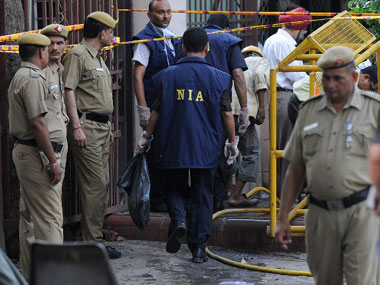Days after Canberra helped nab underworld don Chhota Rajan, India on Tuesday had sought Australia’s help to unravel the conspiracy behind Islamic State militants recruiting Indian youths into its fold following the arrest of a Mumbai man who fought alongside the Middle-East terror group. On Wednesday, the Australian authorities indicated that they are considering sharing information about Majeed’s email account with their Indian authorities, a report in The Indian Express said. The request was made when Australia’s Attorney General George Brandis met Home Minister Rajnath Singh in New Delhi recently. During the meeting, the Indian side conveyed that Mumbai youth Areeb Ejaj Majeed, who was arrested on his return from Iraq and Syria after fighting alongside Islamic State terrorists, used to communicate with his recruiters and associates through various electronic and social media platforms. Areeb used Yahoo email id for substantial part of his communication in Syria, Iraq and back in India and the server of Yahoo is located in Australia, PTI reported. Hence, assistance was sought from Australian authorities regarding subscriber information, login history, IP attachments. [caption id=“attachment_2486626” align=“alignleft” width=“380”]  Representative image. AFP[/caption] “The information would assist in unearthing the entire conspiracy and details of the terrorist acts committed in Iraq and Syria and would also pinpoint the identities of Islamic State recruiters and facilitators,” a home ministry official said. An earlier report in The Indian Express had said that the Australian authorities were posing hurdles in giving valuable information regarding Majeeb. In early October, Australian authorities had demanded assurance from their Indian counterparts that Majeeb will not be given death sentence. Sources had revealed that during exchanges between the two sides, Australia raised Section 34-C of the Extradition Act which stated that in case “the laws of a foreign State do not provide for death penalty for an offence, a fugitive criminal shall be liable only for life imprisonment for that offence”. It is interesting to note here that when the former Australian Prime Minister Tony Abbott had visited India in November 2014, the two nations had decided to establish a Framework for Security Cooperation to reflect the deepening and expanding security and defence engagement between India and Australia, and to intensify cooperation and consultation between Australia and India in areas of mutual interest. The 23-year-old Majeed from Kalyan landed in Mumbai on 28 November, 2014 after spending nearly six months in Iraq, following which he was immediately detained by the security agencies and later arrested. In a classified note said that during interrogation, Majeed said, “ISIS in conspiracy with certain other terrorist organizations is keen that not only resident Indian citizens join the outfit but are also trying to recruit non-resident Indians settled abroad for participating in the so called holy jihad not only in Iraq and Syria but also in India and other countries”. A case under Unlawful Assembly Prevention Act (UAPA) and a section under IPC which deals with waging war against any Asiatic country, which has friendly ties with India, was registered against ISIS, Majeed and three other youngsters. In May 2014, four youths from Kalyan, including Majeed, had left the country to visit holy places in West Asia but disappeared thereafter. They were suspected to have joined Islamic State. According to police, the four engineering students had flown to Baghdad on May 23 as part of a group of 22 pilgrims to visit religious shrines in Iraq. With PTI inputs
Australian authorities indicated that they are considering sharing information about Majeed’s email account with their Indian authorities
Advertisement
End of Article


)

)
)
)
)
)
)
)
)



